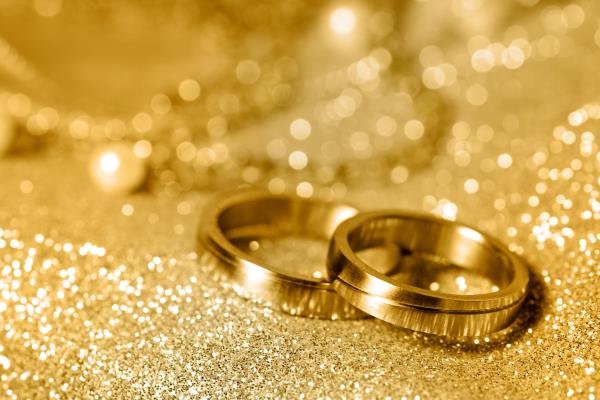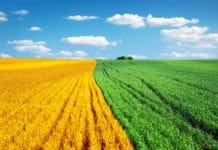The one who laid down the divine doctrine is the creator of man, therefore there was a full consistence between the doctrine and the natural disposition which was created in man.
As long as beauty has a great impact on one’s soul, Allah made it part of the reward of righteous deeds and a result for straightness in this life.
Thereby beauty is the prominent element in the retribution which Allah prepared for His Righteous Servants. The Glorious Qur’an drew attentions in many Ayahs to this meaning where the focus came intensive on sight more than others where it is the means by which a person recognizes this type of bliss.
Let us listen to some of these honorable Ayahs: “Allâh has promised the believers — men and women, — Gardens under which rivers flow to dwell therein forever, and beautiful mansions in Gardens of `Adn (Eden Paradise). But the greatest bliss is the Good Pleasure of Allâh. That is the supreme success.
“Verily, as for those who believed and did righteous deeds, certainly We shall not make the reward of anyone who does his (righteous) deeds in the most perfect manner to be lost. * These! For them will be `Adn (Eden) Paradise (everlasting Gardens); wherein rivers flow underneath them; therein they will be adorned with bracelets of gold, and they will wear green garments of fine and thick silk. They will recline therein on raised thrones. How good i s the reward, and what an excellent Murtafaq (dwelling, resting place.)!
s the reward, and what an excellent Murtafaq (dwelling, resting place.)!
“Truly, Allâh will admit those who believe (in the Oneness of Allâh – Islâmic Monotheism) and do righteous good deeds, to Gardens underneath which rivers flow (in Paradise), wherein they will be adorned with bracelets of gold and pearls and their garments therein will be of silk. * And they are guided (in this world) to goodly speech (i.e. Lâ ilâha illallâh, Alhamdu lillâh, recitation of the Qur’ân, etc.) and they are guided to the Path of Him (i.e. Allâh’s religion of Islâmic Monotheism), Who is Worthy of all praises.”
Through these scenes, eyes move from a beauty to another: Gardens which their trees twist on one another, their branches meet, and rivers run from underneath. As for jewelries, they contain yellow gold and white pearl. As for clothes, they range from ordinary clothes to silk brocade which their greenness is consistent with the general atmosphere; these scenes cause the eyes to stand in amazement.
In another scene where words are few, distances are cancelled, and thoughts are released, Ayah describes the eternity: “therein all that inner-selves could desire.” So, the beauty of the text is part of the real beauty. “Enter Paradise, you and your wives, in happiness. *Trays of gold and cups will be passed round them; (there will be) therein all that inner-selves could desire, and all that eyes could delight in and you will abide therein forever.”
Then the Ayah speaks again about the pleasure of the eyes when they see the things which the inner-self desires. Again in the second Ayah, it speaks about the happiness and the trays of gold which spread an atmosphere of happiness and gladness because everything the inner-self desires exists.
These were general scenes to that retribution in which headlines and important features were mentioned.
We would like to study another text that speaks about this matter in detail:
“So Allâh saved them from the evil of that Day, and gave them Nadrah (a light of beauty) and joy. * And their recompense shall be Paradise, and silken garments, because they were patient. * Reclining therein on raised thrones, they will see there neither the excessive heat of the sun, nor the excessive bitter cold, (as in Paradise there is no sun and no moon). *And the shade thereof is close upon them, and the bunches of fruit thereof will hang low within their reach. * And amongst them will be passed round vessels of silver and cups of crystal – * Crystal-clear, made of silver. They will determine the measure thereof (according to their wishes). * And they will be given to drink there a cup (of wine) mixed with Zanjabîl (ginger), * A spring there, called Salsabîl. * And round about them will (serve) boys of everlasting youth. If you see them, you would think them scattered pearls. * And when you look there (in Paradise), you will see a delight (that cannot be imagined), and a great dominion. * Upon them will be green garments of fine and thick silk. They will be adorned with bracelets of silver, and their Lord will give them a pure drink. * (And it will be said to them): Verily, this is a reward for you, and your endeavor has been accepted.
It is a beautiful scene that spreads beauty from all its aspects, moreover it plays its role in describing the beauty of the bliss which man shall witness in the Hereafter.
In this context, we would like to denote to beauty which is the subject of our matter.
The word “Paradise” which means bliss depicts a picture of natural beauty where trees twist on one another and look like regular and irregular arches and each one plays its role in perfecting the picture.
As for the “raised thrones,” they are not ordinary beds on which man sleeps, but they were surrounded by curtains, not to block the view but, to show the beauty of the place.
As for “shades,” they are not shades to protect from the heat of the sun where they do not feel the heat of the sun or severe cold, but they play their role in showing the beauty.
As for the “cups,” they are not just vessels to pour liquids in but they are for decoration, and people anciently and recently show interest in cups and vessels for decoration. These cups and vessels are made of silver and silver depicts in the mind the image of glittering that implies clearness. Cups are made of the same material but they have another structure to play their role in watering and to be in harmony with the rest of vessels in color. Cups and vessels were precisely estimated in regards of profession and perfection until they became transparent despite they are made of silver.
As for the children who serve the people of Paradise, they are like covered pearls, this is a fine divine description.
As for clothes, they are made of silk so as to be in harmony with the general atmosphere and would not make any incoherence in color, but they integrate, likewise jewelries.
As for Allah’s Saying: “And when you look there, you will see,” this is confirmation on the importance of sights which a large part of bliss will happen through them.
T he Qur’anic texts do not neglect the human psychological aspect and its impact on the brightness of the face while he is living in that bliss. Face is the surface that reflects everything surrounds it in eloquence. Many references were mentioned in different positions of the Qur’an like the following Ayah: “So Allâh saved them from the evil of that Day, and gave them Nadrah (a light of beauty) and joy.” And of which is Allah’s Saying: “Some faces that Day shall be Nâdirah (shining and radiant). * Looking at their Lord (Allâh).
he Qur’anic texts do not neglect the human psychological aspect and its impact on the brightness of the face while he is living in that bliss. Face is the surface that reflects everything surrounds it in eloquence. Many references were mentioned in different positions of the Qur’an like the following Ayah: “So Allâh saved them from the evil of that Day, and gave them Nadrah (a light of beauty) and joy.” And of which is Allah’s Saying: “Some faces that Day shall be Nâdirah (shining and radiant). * Looking at their Lord (Allâh).
The impacts of the bliss and beauty shall appear on the faces of those whom Allah granted winning and success, and everyone sees them will recognize happiness and bliss in their faces. “Verily, Al-Abrâr (the pious believers of Islamic monotheism) will be in Delight (Paradise); * On thrones, looking (at all things). * You will recognize in their faces the brightness of delight.
It is the image of man whose face is in harmony with the mentioned atmosphere because dark faces are not fit for that atmosphere and cause detesting.
Of what has been mentioned previously, we see how much texts cared for beauty and its deep impact on souls, so the description of beauty was part of the reward, and a temptation for people to do righteously.
Hence, we realize the precision of the Islamic doctrine in dealing with human soul and meeting its needs through fulfilling the natural and basic needs.
The Glorious Qur’an records in its Ayahs the impact of beauty on oneself when it is a real beauty, and exposes it when the beauty is fake.
In the first case, the Islamic doctrine deals with natural disposition to promote man where feelings and emotions become soft, leaving him walk in the way of beautification which Allah spoke about in the following Ayah: “But Allâh has endeared the Faith to you and has beautified it in your hearts.”
In the second case, you find the false beautification where man is possessed by hard feelings and materialism, then his feelings die and becomes slave to his desires and whims. At that moment, man goes down, his humanity hides, and his material side takes control, then he shall be as Allah said: “They are like cattle, nay even more astray.”
[1] Surat At-Tawbah: 72.
[2] Surat of Al Kahf: 30 – 31.
[3] Surat Al Hajj: 23 – 24.
[4] Surat Az-Zukhruf: 70 – 71.
[5] Surat Al Insan: 11 – 22.
[6] Surat Al Qiyamah: 22 – 23.
[7] Surat Al Mutaffifin: 22- 24.
[8] Surat Al Hujurat: 7.
[9] Surat Al A`raf: 179.











